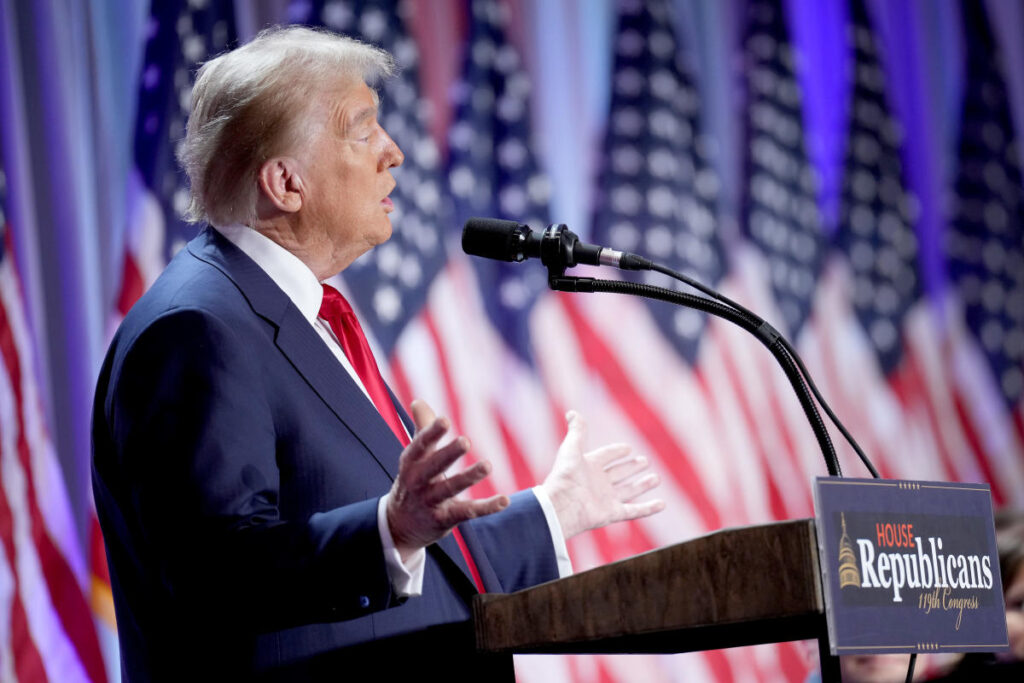The past four years for federal student loan borrowers have been characterized by significant fluctuations, with nearly five million individuals benefiting from the $175 billion in debt cancellation under President Joe Biden. However, many others have faced roadblocks to relief due to ongoing legal disputes. The landscape for student loans is likely to remain tumultuous with the anticipated transfer of power; under President-elect Donald Trump, significant changes to the student loan policies instituted by Biden could occur. Experts are concerned that the Trump administration’s approach will be much more restrictive, particularly in terms of debt cancellation, as well as the overall federal student loan program. Republican control of both Congress and the White House raises fears that existing borrowers may experience financial strain from increased bills and potential cuts to essential programs aimed at protecting public service workers who bear student debt.
The Trump administration could potentially dismantle Biden’s student loan policies with minimal effort, simply by refusing to defend them in court. Key initiatives like the Saving on a Valuable Education Plan, designed to provide manageable monthly payments and a way to rapidly achieve loan forgiveness, may be negated by the new administration. With over eight million borrowers enrolled in the program and already benefitting from its provisions, further action from Trump could lead to these individuals facing stark increases in their payment obligations, as the legal landscape, currently influenced by GOP-backed lawsuits, is awaited. Education experts warn that the Trump administration may choose to revert to the standards established during his previous presidency, pushing borrowers into more traditional repayment methods and complicating their paths to financial relief.
Additionally, the future remains uncertain for other vital relief efforts such as Biden’s anticipated broad debt cancellation and the borrower defense to repayment regulations aimed at protecting students misled by their institutions. With ongoing litigation blocking the implementation of these programs, and Trump’s outright opposition to Biden’s proposals, the likelihood of substantial support or continuation in these areas seems bleak. Trump’s administration could also choose to ignore or allow the courts to overturn critical policies that were established to aid borrowers facing economic hardship stemming from student debt, compounding the challenges many users currently confront amid rising inflation and higher costs of living.
Simultaneously, Trump’s educational and financial strategies could take a more direct approach by rescinding current regulations that have expanded student loan forgiveness, particularly those that benefit public service employees. While there was past bipartisan support for programs like Public Service Loan Forgiveness, Trump’s previous attempts to eliminate these provisions and his current agenda may hinder future opportunities for borrowers who dedicate their careers to community-serving professions. Although current experts predict significant challenges to the reauthorization of such programs, there are indications that some Republican factions still acknowledge the importance of retaining limited benefits for public workers.
Despite the uncertainty around future federal financial aid programs, congressional Republicans are likely to attempt to revive legislation that could fundamentally redefine student loan policies. The College Cost Reduction Act, which failed to pass previously, proposes to scale back specific loan programs and restrict how much students can borrow. Embedded in broader structural changes, the act aims to overhaul repayment plans, potentially leading to increased payment burden for borrowers. Nevertheless, proponents argue that it could simplify the complex student loan system that many view as difficult and overwhelming. The potential for the legislation to advance through a budget reconciliation process demonstrates how strategic maneuvering could facilitate the passage of significant changes in this area.
In the wake of Biden’s efforts to issue around $175 billion in debt relief, there remains unfinished business; numerous borrowers still await the processing of approved debt discharges. Experts urge that the Biden administration expedite the completion of these discharges to ensure that those eligible receive their due benefits before Trump assumes control. Historical precedents set during Trump’s first term indicate a likelihood of prolonged delays in processing claims, which further emphasizes the immediacy for the current administration to affirmatively act on these unfinished matters before handing over the reins, as advocates fear that anything less could result in a hardship for numerous borrowers facing unremitting debt burdens.

